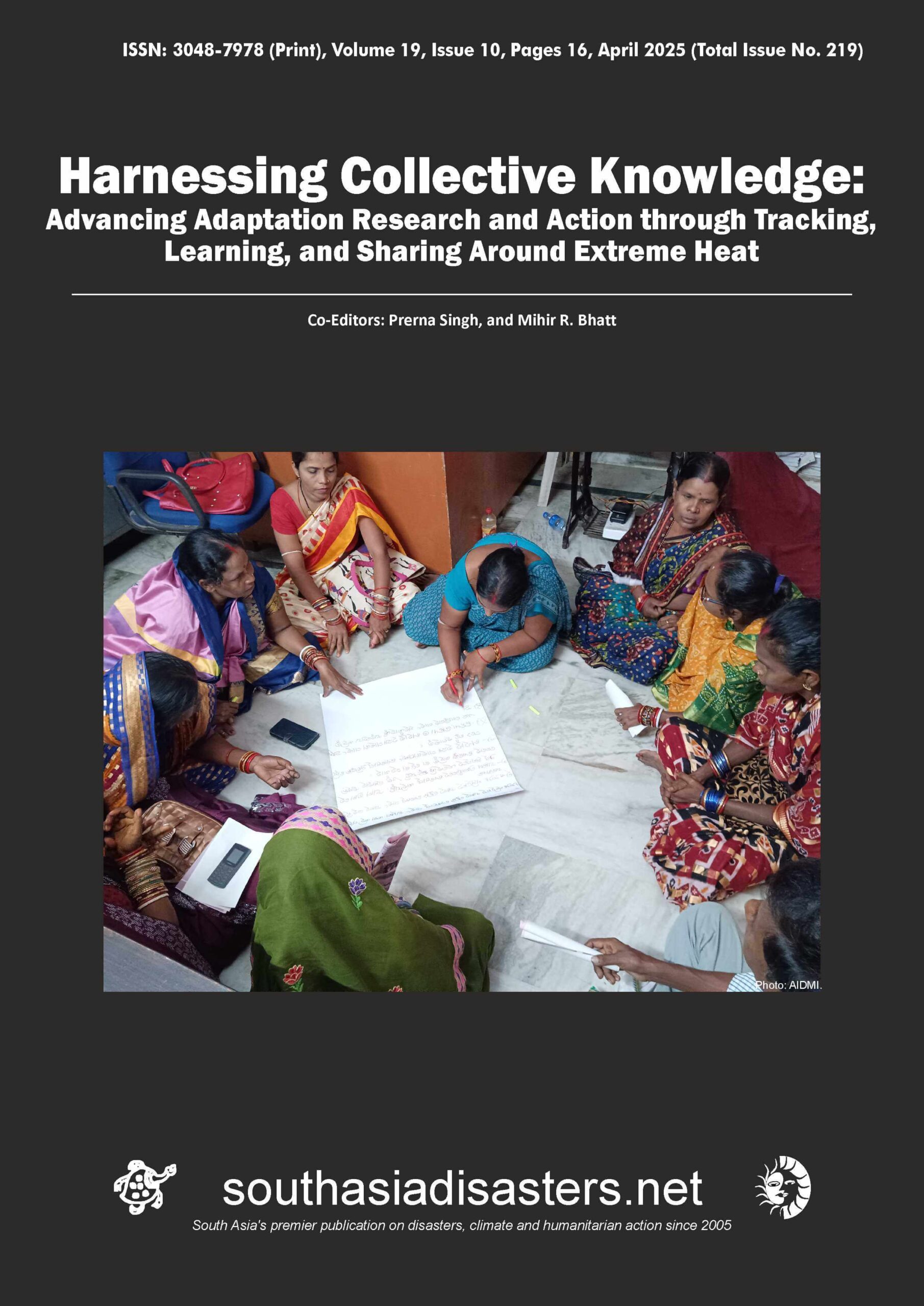 Back to Co-creating Knowledge
Back to Co-creating Knowledge
Southasiadisasters.net, Issue No. 219 | April 2025
Extreme heat is no longer a distant threat—it’s an everyday challenge for millions across South Asia. This issue of Southasiadisasters.net—Harnessing Collective Knowledge for Extreme Heat Adaptation—focuses on the urgency of local, inclusive, and knowledge-driven responses to extreme heat, as the region faces rising temperatures and unprecedented climate risks.
This issue brings together diverse voices from across South Asia, showcasing how communities, governments, and institutions tackle extreme heat’s escalating impacts. This edition highlights the critical importance of sharing knowledge to craft more effective and inclusive solutions through collective learning, from community-led adaptations to the latest scientific insights.
From indigenous cooling practices in Bangladesh to the Heat Action Plans in Indian cities like Ahmedabad and Rajkot, the publication offers actionable insights on what works on the ground. It also emphasises the value of localised, context-specific interventions and stresses the need for sustained collaboration across sectors, regions, and borders.
With contributions from grassroots organisations, researchers, and policy experts, this issue underscores the essential role of collective knowledge in driving meaningful adaptation. The publication invites readers to reflect on the stories, lessons, and strategies shared, to build stronger, more resilient communities in the face of rising heat stress.
Prerna Singh, Programme Director, Climate Adaptation Learning Lab (CALL), Transitions Research, India
Diksha Gupta, Transitions Research, Prerna Singh, Transitions Research, and Mihir R. Bhatt, AIDMI, India
Vishal Pathak, AIDMI, India
Muhammad Abdur Rahaman, Director, Center for People and Environ, Dhaka, Bangladesh & Research Scholar, Tripura University, Agartala, Tripura, India
Shibaji Bose, Independent Research Consultant; and Madhubanti Talukdar, Independent Researcher, India
Chirayu Brahmbhatt, Development Associate, Mahila Housing Trust, Gujarat, India
Bedoshruti Sadhukhan, Associate Director, ICLEI, New Delhi, India
Dr (Cdr) Arnab Das, Founder and Director, Maritime Research Center, Maharashtra, India
Tashina Madappa Cheranda, Senior Associate in the Adaptation and Risk Analysis Team, Center for Study of Science, Technology and Policy (CSTEP), Karnataka, India
Mihir R. Bhatt, AIDMI, India